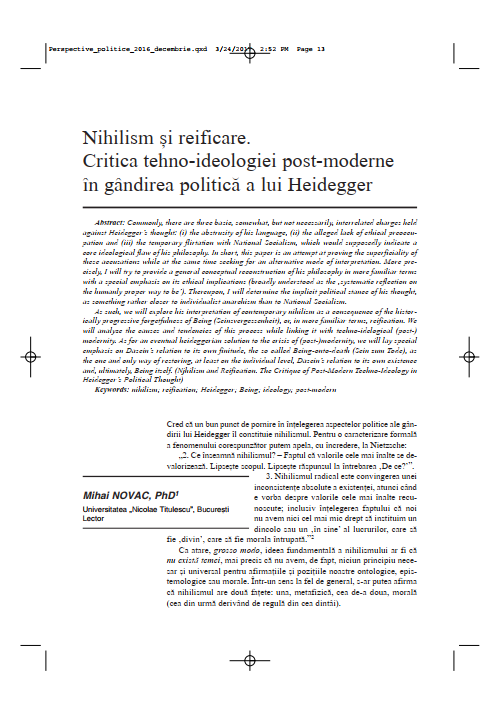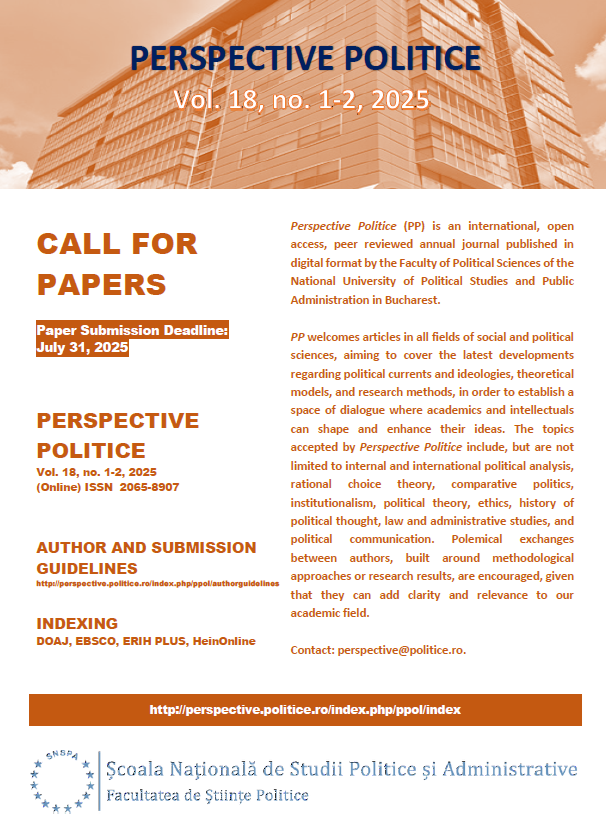Nihilism si reificare. Critica tehno-ideologiei post-moderne in gandirea politica a lui Heidegger
Abstract
Commonly, there are three basic, somewhat, but not necessarily, interrelated charges held against Heidegger’s thought: (i) the abstrusity of his language, (ii) the alleged lack of ethical preoccupation and (iii) the temporary flirtation with National Socialism, which would supposedly indicate a core ideological flaw of his philosophy. In short, this paper is an attempt at proving the superficiality of these accusations while at the same time seeking for an alternative mode of interpretation. More precisely, I will try to provide a general conceptual reconstruction of his philosophy in more familiar terms with a special emphasis on its ethical implications (broadly understood as the ‚systematic reflection on the humanly proper way to be’). Thereupon, I will determine the implicit political stance of his thought, as something rather closer to individualist anarchism than to National Socialism.
As such, we will explore his interpretation of contemporary nihilism as a consequence of the historically progressive forgetfulness of Being Seinsvergessenheit), or, in more familiar terms, reification. We will analyze the causes and tendencies of this process while linking it with techno-idelogical (post-) modernity. As for an eventual heideggerian solution to the crisis of (post-)modernity, we will lay special emphasis on Dasein’s relation to its own finitude, the so called Being-onto-death (Sein zum Tode), as the one and only way of restoring, at least on the individual level, Dasein’s relation to its own existence and, ultimately, Being itself. (Njhilism and Reification. The Critique of Post-Modern Techno-Ideology in Heidegger’s Political Thought)




